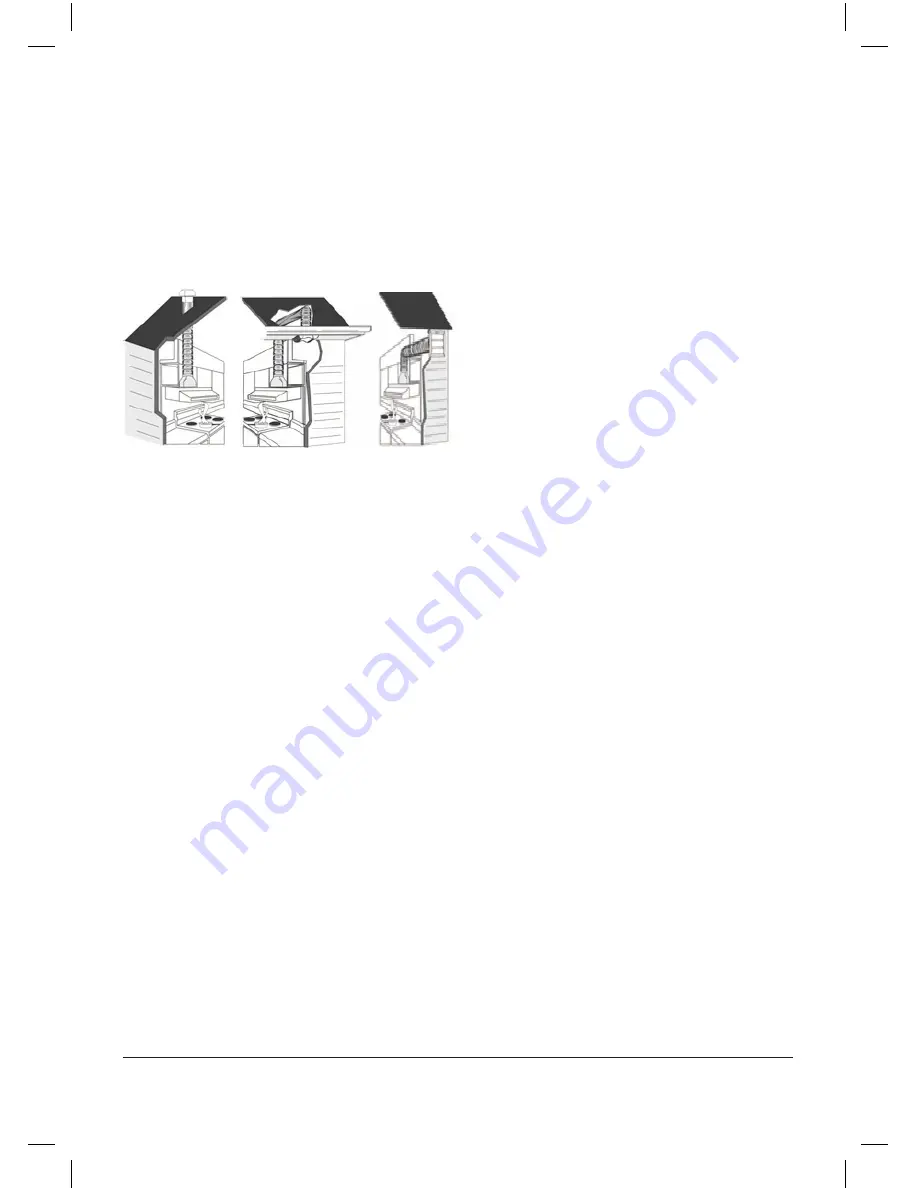
8
Ducting options
Before beginning the installation of your
rangehood, the method of ducting should be
considered and selected. The guide below
illustrates the various ducting options.
Note:
This rangehood can be operated in recirculation
mode where required, although it is
recommended to duct wherever possible.
— Straight up and through your tiled or metal
roof. (Fig. 2)
— Into your ceiling cavity and then vented
through your eaves. (Fig. 3)
— Through your wall (Fig. 4)
Further to your various ducting options,
below are some tips on how to correctly duct
your rangehood:
– Always use correctly sized ducting:
DO NOT reduce the size of the ducting
– Always use solid ducting
– Always use non-flammable ducting
– Always duct to the outside atmosphere
– Do not use flexible ducting
– Do not duct into the ceiling space:
always vent to the outside atmosphere.
– Avoid sharp 90 degree bends as much
as possible, use 45 degree bends instead
wherever possible
– Duct to the outside atmosphere using the
shortest duct run possible
– Use cylindrical ducting whenever possible
Positioning the rangehood:
Installation heights
– Over gas and electric cookers, we
recommend our rangehoods to be mounted
at a height of between 600-800mm above
the cooking surface.
– Electric cooktops must have a minimum
height of 600mm from the underside of the
rangehood to the cooktop face.
– Gas cooktops must have a minimum of
650mm from the burner to the underside
of the rangedhood.
– Gas Regulations require the fi lters of the
rangehood to be at least 1200mm above the
cooking surface when used over open flame
grillers or barbecues.*
* We do not recommend this rangehood
for outdoor use or being installed above
barbecues/open flame grillers.
Fig. 3
Fig. 4
Fig. 2


































